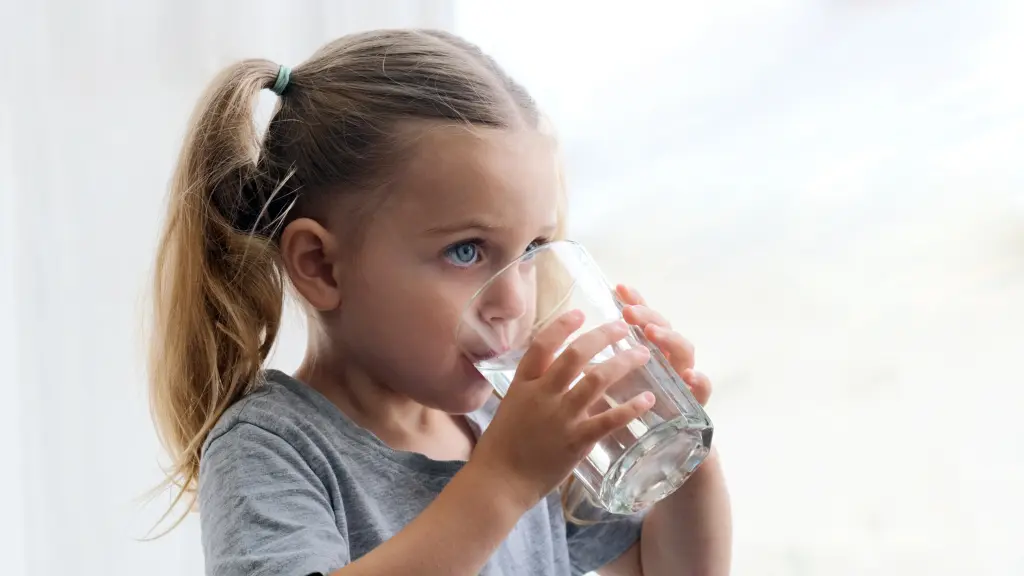Water is essential for life, but when it comes to babies, timing is everything. As a new parent, you might wonder, “When Can Babies Drink Water?” The answer isn’t as simple as you’d think. While adults and older kids rely on water daily, babies have different needs—especially in their first few months.
Babies don’t need water until they’re about 6 months old. Before that, breast milk or formula provides all the hydration and nutrients they need. Giving water too early can do more harm than good.

In this article, we’ll explain everything you need to know about when and how to introduce water to your baby, along with tips to keep them safe and happy. Let’s dive in!
Why Water Isn’t Needed for Newborns?
Imagine your baby’s tummy as a tiny teacup—small and can only hold so much. For newborns, breast milk or formula fills that teacup perfectly. It provides all the hydration and nutrients your baby needs to grow and thrive.
But here’s the thing: water can be harmful to newborns. Their kidneys aren’t fully developed yet, and too much water can throw off their delicate balance of electrolytes. This can lead to a rare but severe condition called water intoxication. So, for the first few months, stick to milk or formula. Your baby doesn’t need anything else!
When Is It Safe to Give Water to Babies?
Now, you might wonder, “When is the right time to introduce water?” The magic number is 6 months. Around this age, most babies start eating solid foods, and their bodies are better equipped to handle small amounts of water.
But don’t go overboard! At this stage, water is more about practice and less about hydration. Think of it as a fun way for your baby to learn how to sip from a cup.
Tips for Offering Water Safely
Introducing water to your baby doesn’t have to be complicated. Here are some simple tips to keep in mind:
- Start small: Offer just a few sips at a time.
- Use the right cup: A sippy or small open cup works best.
- Timing matters: Offer water during or after meals, not as a replacement for milk.
Remember, water is a supplement, not a substitute. Your baby still needs breast milk or formula as their primary source of nutrition.
Starting Water at 6 Months: First Steps
When your baby hits the 6-month mark, it’s time to take those first steps toward introducing water. Here’s how to do it:
- Choose the right cup: A soft-spout sippy or small training cup is ideal.
- Offer a few sips: Start with 1-2 ounces of water daily.
- Make it fun: Let your baby explore and practice holding the cup.
This is a learning process, so don’t worry if your baby doesn’t get it immediately. Patience is key!
Signs Your Baby is Getting the Right Amount of Water
How do you know if your baby drinks enough or too much water? Here are some signs to look for:

- Healthy diapers: Your baby should have 5-6 wet diapers daily.
- Happy and active: A well-hydrated baby is usually cheerful and energetic.
- No signs of dehydration: Dry lips, sunken eyes, or fewer wet diapers can be red flags.
If unsure, trust your instincts and talk to your pediatrician.
Best Ways to Give Water to Your Baby
Cup Choices
When it comes to cups, you’ve got options! Here’s a quick breakdown:
| Cup Type | Pros | Cons |
| Sippy Cup | Easy to use, less spillage | Can delay oral motor development |
| Open Cup | Encourages proper drinking skills | Messy, requires supervision |
| Straw Cup | Good for oral development | It takes practice to learn |
Temperature Tips
Babies prefer water that’s room temperature or slightly cool. Avoid giving them ice-cold water, as it might be uncomfortable for their sensitive tummies.
When to Offer Water
The best time to offer water is during or after meals. This helps your baby get used to drinking water without replacing their milk intake.
Why Breast Milk or Formula Is Enough?
You might think, “Why can’t I just give my baby water earlier?” The answer lies in the incredible power of breast milk and formula. These liquids are packed with everything your baby needs:
- Hydration: They’re 80-90% water.
- Nutrition: They contain essential vitamins, minerals, and fats.
- Immunity: Breast milk even provides antibodies to protect your baby.
So, until your baby starts solids, milk is all they need.
What Kind of Water is Safe for Babies?
Not all water is created equal, especially when it comes to babies. Here’s what you need to know:
- Tap water: If tap water is safe for drinking, it’s OK for your baby. Just run it for 30 seconds to flush out any contaminants.
- Filtered water: A good option if you’re concerned about impurities.
- Bottled water: Choose low-sodium options and avoid mineral water.
If you’re using water to mix formula for babies under 6 months, boil it first and let it cool to kill any bacteria.
Information Video:
Common Mistakes to Avoid
Even well-meaning parents can make mistakes when it comes to giving water to babies. Here are some common pitfalls to watch out for:
- Giving water too early: Stick to milk or formula until 6 months.
- Overdoing it: Too much water can fill your baby’s tummy and reduce their appetite for milk.
- Replacing milk with water: Milk should still be the primary source of nutrition.
When to Call the Doctor?
Warning Signs
Sometimes, things don’t go as planned. Here are some warning signs that something might be wrong:
- Dehydration: Fewer wet diapers, dry mouth, or lethargy.
- Overhydration: Swelling, irritability, or diluted urine.
Emergency Situations
If your baby shows severe symptoms like vomiting, seizures, or extreme drowsiness, seek medical help immediately.
Final Thoughts on Babies and Water
Introducing water to your baby is a milestone but it mustn’t be stressful. Breast milk or formula is all your baby needs for the first 6 months. After that, water can be a fun and healthy addition to their diet—keep it in moderation.
As your baby grows, they’ll learn to love water as much as you do. Until then, enjoy those precious moments of sipping, splashing, and exploring. After all, parenting is all about taking things one sip at a time!

Pingback: How to Take Care of a Baby Boy? Essential Tips for Parents - Baby Care Corner
Pingback: Baby Boy Nursery Ideas That Wow Without the Worry